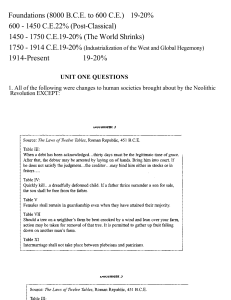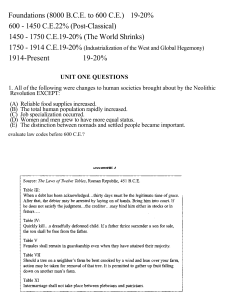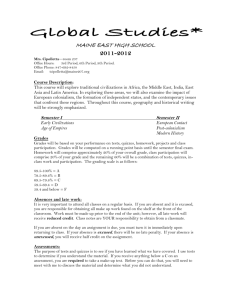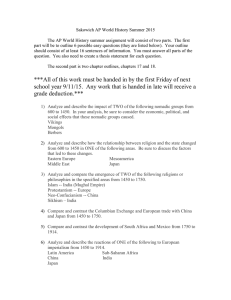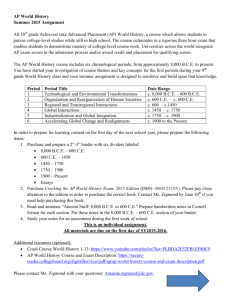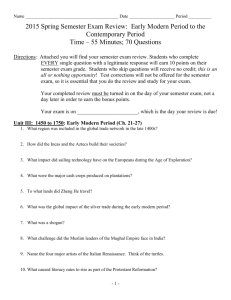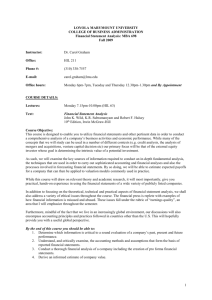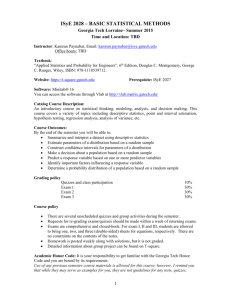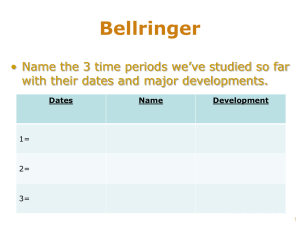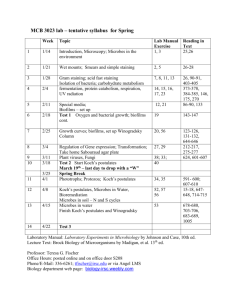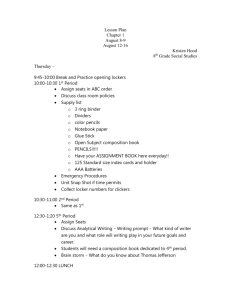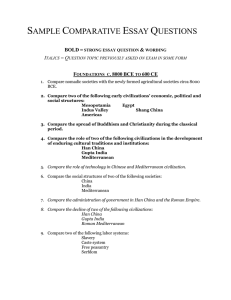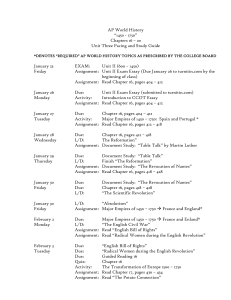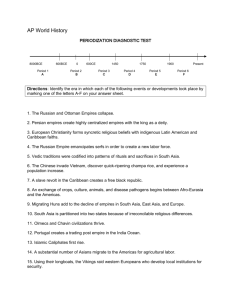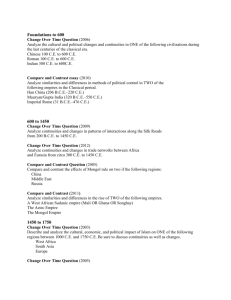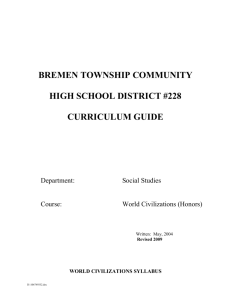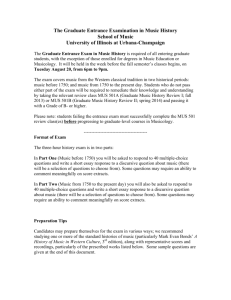AP Human Geography Syllabus
advertisement
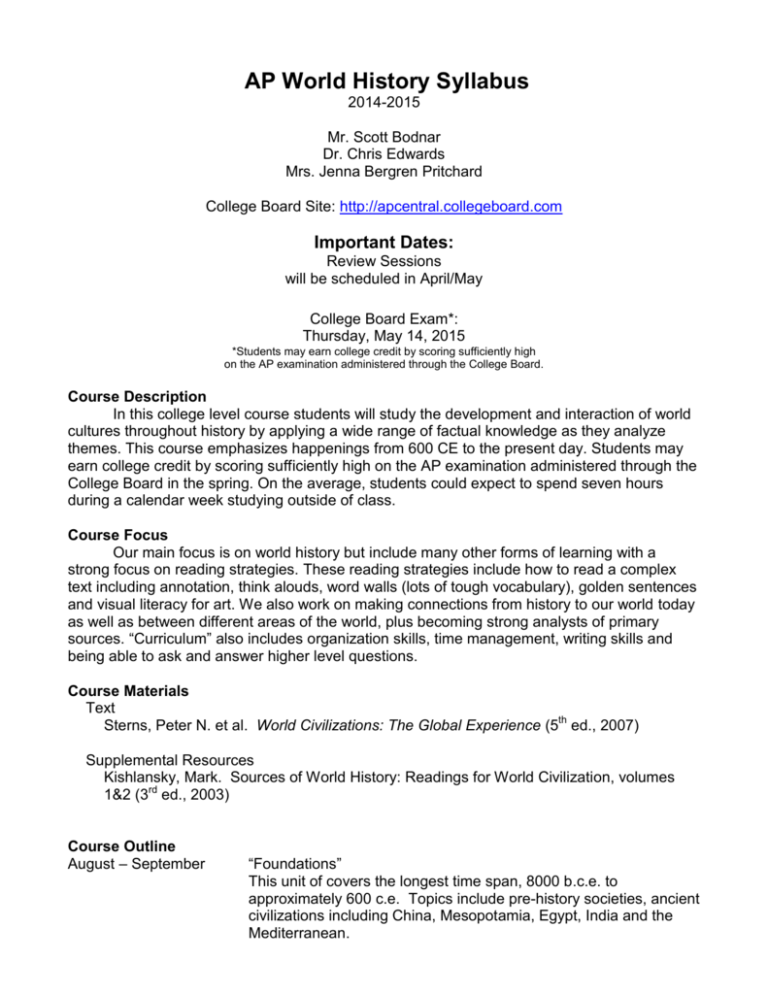
AP World History Syllabus 2014-2015 Mr. Scott Bodnar Dr. Chris Edwards Mrs. Jenna Bergren Pritchard College Board Site: http://apcentral.collegeboard.com Important Dates: Review Sessions will be scheduled in April/May College Board Exam*: Thursday, May 14, 2015 *Students may earn college credit by scoring sufficiently high on the AP examination administered through the College Board. Course Description In this college level course students will study the development and interaction of world cultures throughout history by applying a wide range of factual knowledge as they analyze themes. This course emphasizes happenings from 600 CE to the present day. Students may earn college credit by scoring sufficiently high on the AP examination administered through the College Board in the spring. On the average, students could expect to spend seven hours during a calendar week studying outside of class. Course Focus Our main focus is on world history but include many other forms of learning with a strong focus on reading strategies. These reading strategies include how to read a complex text including annotation, think alouds, word walls (lots of tough vocabulary), golden sentences and visual literacy for art. We also work on making connections from history to our world today as well as between different areas of the world, plus becoming strong analysts of primary sources. “Curriculum” also includes organization skills, time management, writing skills and being able to ask and answer higher level questions. Course Materials Text Sterns, Peter N. et al. World Civilizations: The Global Experience (5th ed., 2007) Supplemental Resources Kishlansky, Mark. Sources of World History: Readings for World Civilization, volumes 1&2 (3rd ed., 2003) Course Outline August – September “Foundations” This unit of covers the longest time span, 8000 b.c.e. to approximately 600 c.e. Topics include pre-history societies, ancient civilizations including China, Mesopotamia, Egypt, India and the Mediterranean. September – October “The Post Classical World” In this unit, we will cover the rise and spread of Islam, the Byzantine world, the growth of Western Europe including the Middle Ages as well as the Middle Ages of Asia. The Unit covers a time period from approximately 600 c.e to 1450 c.e. October – December “The World Shrinks” The main focus of this unit is on the Age of Exploration and its economic, political and social impact on a global scale. The unit covers a time period from approximately 1450 c.e. to 1750 c.e. January “The AP Exam” We will spend the first 2 weeks of the new semester delving into the AP exam; looking at past example, writing requirements and general expectation for the test. We will conclude this week with the writing of a DBQ, a document-based question. January – March “Industrialization and Western Hegemony” This unit challenges us to consider the rapidly changing modern world in light of the industrial period. Additionally, we continue to explore the impact of western-dominance on the world. This unit covers from 1750 c.e. to 1914 c.e. March – May “The 20th Century” Internationalism, globalization and interdependence are the themes of this unit. We also will study the independence movements of former western colonies and territories. This unit covers post World War I to the present. Early May Review activities and assessments in preparation for the exam. The grade for this class is determined as follows: 1st semester 10% summer work 10% participation 15% reading quizzes 15% précis 10% notebook check and flashcards 40% tests 2nd semester 10% final project/review 10% participation 15% reading quizzes 15% précis 10% notebook check and flashcards 40% tests
